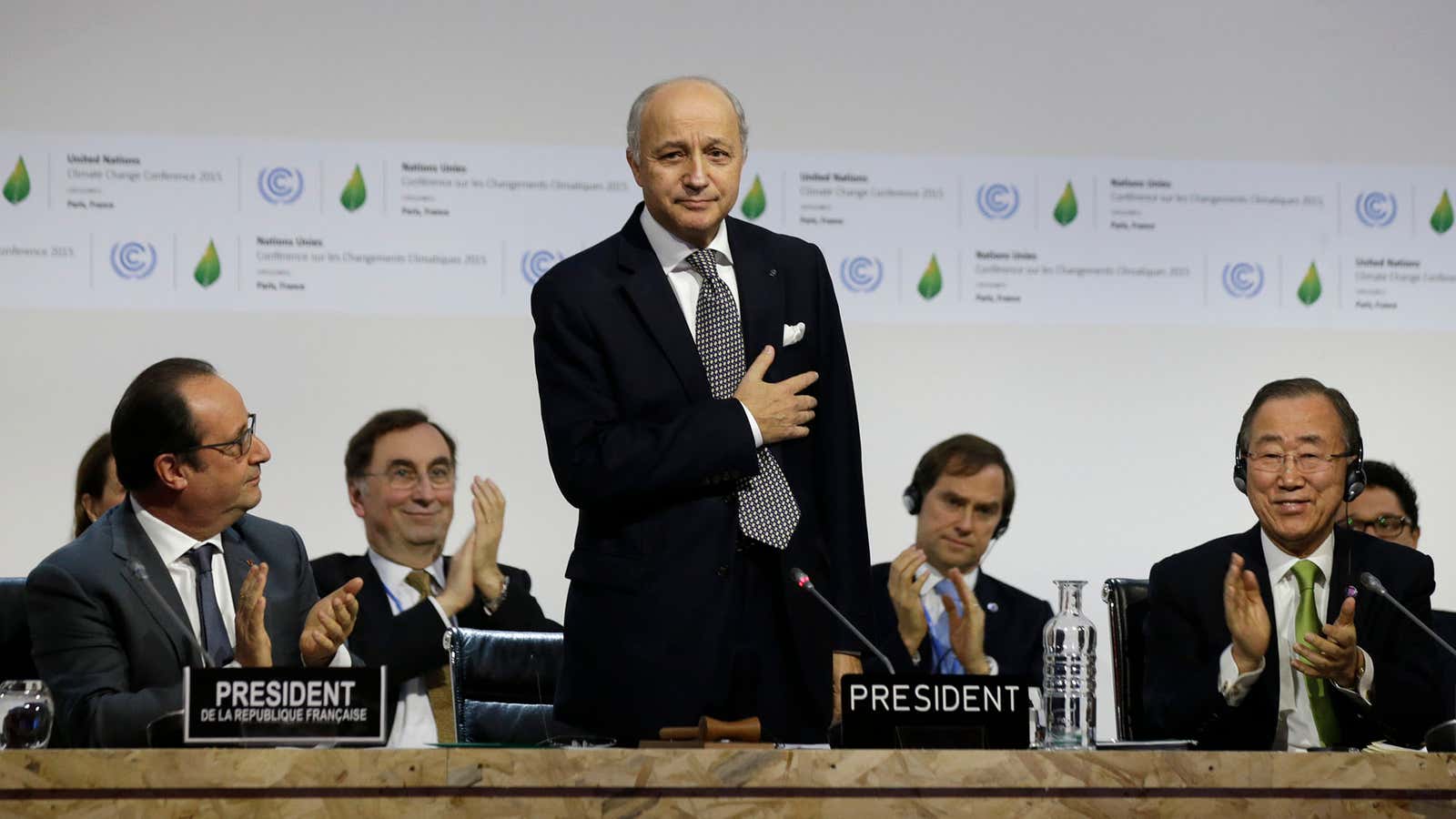Negotiations are difficult by nature. Managing negotiations between 195 countries in order to arrive at a legally binding agreement, on the other hand, is nearly impossible. This was the problem that United Nations officials faced over two weeks at this month’s climate-change summit in Paris. To solve it, they brought in a unique management strategy.
The trick to getting through an over-complicated negotiation comes from the Zulu and Xhosa people of southern Africa. It’s called an “indaba” (pronounced IN-DAR-BAH), and is used to simplify discussions between many parties.
An indaba is designed to allow every party to voice its opinion, but still arrive at a consensus quickly. It works because opinions and arguments can only be aired in a particular way:
Instead of repeating stated positions, each party is encouraged to speak personally and state their “red lines,” which are thresholds that they don’t want to cross. But while telling others their hard limits, they are also asked to provide solutions to find a common ground.
When on Thursday (Dec. 10) things got particularly tricky in Paris, indabas were held in private rooms at all hours of the day. Different delegations rotated officials so that everyone could get some sleep.
It seems to have worked. “Including everyone and allowing often hostile countries to speak in earshot of observers, [one indaba] achieved a remarkable breakthrough within 30 minutes,” according to the Guardian. The agreement was presented today, and in a historic first all 195 countries adopted it without any objections.
Indabas were first introduced in climate negotiation talks in Durban in 2011. In the last minutes of the meeting, negotiators reached a deadlock. To prevent talks from collapsing, the South African presidency asked representatives from the main countries to form a standing circle and speak directly to each other.
The technique clearly impressed many. “It is a very effective way to streamline negotiations and bridge differences. It has the advantage of being participatory yet fair,” one West African diplomat told the Guardian. “It should be used much more when no way through a problem can be found.”




